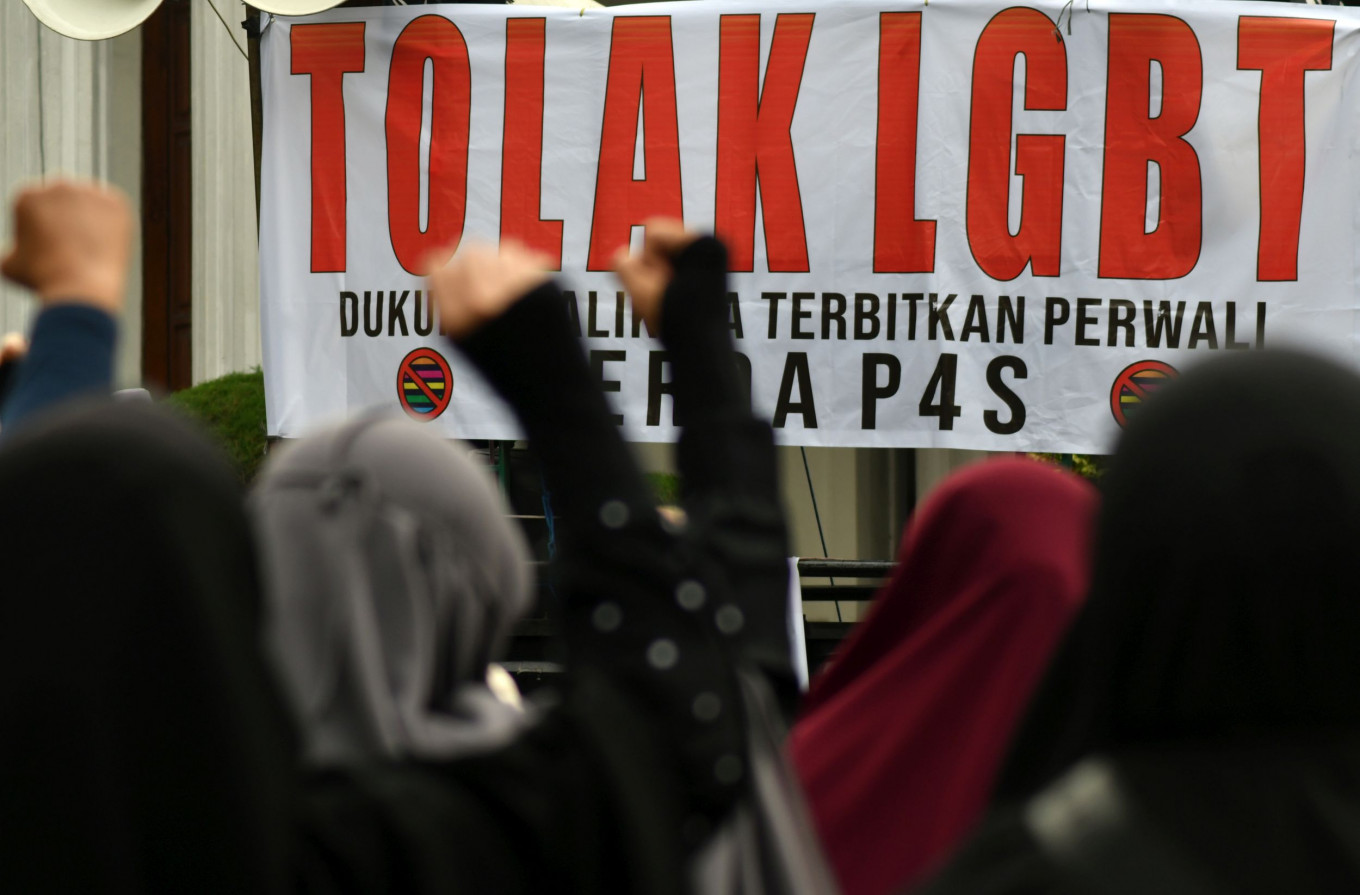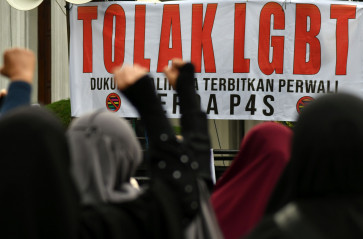Popular Reads
Top Results
Can't find what you're looking for?
View all search resultsPopular Reads
Top Results
Can't find what you're looking for?
View all search resultsStop with the LGBTQ scapegoating
LGBTQ scapegoating should not only alarm queer activists but also civil society as a whole.
Change text size
Gift Premium Articles
to Anyone
I
t has become very clear that rejection of the lesbian, gay, bisexual, transgender and queer (LGBTQ) community in Indonesia has grown, increasing the danger of the group being made scapegoats in the country’s politics. From various statements of public officials to content created by student organizations, hate toward the Indonesian LGBTQ community seems not only to have been normalized but also systematically encouraged.
In September 2023, research conducted by UCLA’s Williams Institute found a correlation between anti-LGBTQ attitudes and democratic decline, with Indonesia as one of its examples. The study compared data from the LGBTI Global Acceptance Index (GAI), the V-Dem Liberal Democracy Index and the World Bank.
It is found that “democratic backsliding has come in tandem with a rise in state-sanctioned rhetoric and policymaking that directly targets” LGBTQ persons (Flores, et.al., 2023). Countries with freer democracies (indicated by free and fair elections and higher GDP per capita) also tended to be more accepting of the queer community.
Hence, LGBTQ scapegoating should not only alarm queer activists but also civil society as a whole. It is not only blatant systemic oppression but also a clear symptom of a declining democratic society.
Scapegoating vulnerable communities is considered to be one of the traits of antidemocratic leaders (Freedom House, 2018). From Muslims in European countries to LGBTQ persons, these vulnerable communities are used by the antidemocratic leaders or institutions as a shield for their incompetence in making adequate public policy, or their failures, or even to mobilize support to win elections.
Research from Project Over Zero (2024), an organization that focuses on identity-based violence, sums up eight characteristics of a “compelling scapegoat”. First, there are knowledge gaps in the general public, hence it is easier to spread false narratives. Second, scapegoats are usually the minority in society; third, they may cause sexual anxiety and taboos that make it “easier to dehumanize them”. Fourth, their identities are often reduced to a stereotype of behaviors. Fifth, scapegoats are usually the opponents of the religious majority; and sixth, they are seen as foreign/coming from the “outside”.
Lastly, there are usually pre-existing conspiracy theories about these communities, including ones related to women and children.



















